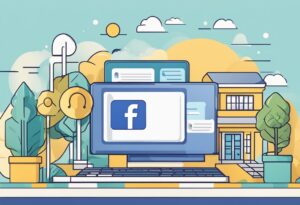Every small business owner should have a website to show off their business. I think most of us know that but why? What are the benefits of websites for small business owners? Hopefully, we can answer some of those questions and make it easier to make the decision you need.
What are the benefits of websites for small businesses?
- More Sales = More profit
- More Leads = More Clients
The benefits of websites for small business owners are simple. Get more visitors the more likely you are to make a sale. That’s why you’re in business, right? To make a profit.
All though that is true, the benefits can also make your life easier as websites are not just simple good looking sites to show what you do.
- CRM
- Appointment Maker
- Contact
- Online Shop – Order Online
- Frequently Asked Questions
Having a CRM integrated on your website can be a great benefit
CRM = Customer Relationship Manager can be a great benefit for your small business, CRM’s are fairly sophisticated today and is a great way to keep your clients organized, set a reminder to do certain tasks to help make your business run smoother. You can integrate most of these to capture incoming leads from your website, so you can send email sequences or remind yourself to call people at a certain time.
- 17hats
- Hubspot
- Honeybook
- Monday
Having your appointments made on a small business website can benefit you greatly
It is great to have your phone ringing off the hook, it can be a magnificent thing. However, it can also be quite time-consuming for you or your employees to pick up the phone and answer all the questions your potential client is asking. So what if you had a system installed so your clients could visit and set a time for you to either meet or talk on the phone. Having an online calendar appointment system could greatly increase your productivity and also reduce stress for you and your staff. Unnecessary email coordinating takes up a lot of time for little return as only about 20% of emails that are sent get opened. Tools like appointment scheduling apps and booking software help automate the process of scheduling meetings with potential and existing customers without relying on email replies to nail down a good time.
- Calendly
- Square Appointments
- Acuity Scheduling
Of course, having an online shop can benefit your small business greatly
It seems that everyone has found out that having an e-commerce shop can improve their bottom line. Again having an online shop can benefit you tremendously by customers find your products and service online so they don’t need to spend those extra minutes through email or phone conversations. Having your product inventory online can improve your SEO for those products bringing customers that might not have found otherwise. Also, the online store will help you free up employees to help the local ones that visit your shop. Restaurants and take-out places are now benefitting by having their menu online as well as online. Greatly reducing their wait time, increase their orders and sales. At the same time increasing their efficiency.
Adding frequently asked questions is a great benefit of websites for small business
It seems like such a simple task, find out what is frequently asked and add those questions to your website. This is a wise decision, all customers or clients will have questions about your business. If you can pinpoint those questions people will ask you and direct them to your site, Adding frequent ask questions can save you a lot of time as well as headaches. You can help train your newly employed staff to memorize these questions. This can help reduce some of the training as well as have a resource for them to refer to. For your clients, if a certain customer attempts to tell you did not say something that you clearly know what you said and it is in the FAQ’s your can refer them to that page on your website.
The benefits of websites for small business are a clear win-win for success
The main focus that businesses benefit from is clear that efficacy with a small business. Websites will make your job easier so you can focus on the more important things like building your business.
Now that you know the benefits of websites for small businesses, how do you start planning one?
When planning your first small business website, there are three essential questions you should ask yourself:
- Who is your target audience?
- How will your target audience find you?
- How will you convert your visitors into sales?
These questions sound obvious, but it’s amazing how many people don’t bother…and then moan that “our website doesn’t bring us any business”.

1) Who is your target audience?
Give a great deal of thought to your target market. Who do you want to attract to your website? Why? The answer to that is more than likely to sell them something – a product, a service, or an idea perhaps.
Claiming that your market is anyone and everyone is far too vague, and your website will lack focus, and fail to maximise its potential. Ideally you should be aiming to create a niche.
2) How will they find you?
Creating a niche will also help you with the search engines, and drive hot leads to your site.
Consider what keywords your target market might type into a search engine to find you. Actually do the searches yourself. Who comes up in the top 30? Because that’s where you need to be. Are your competitors there? Look at their sites. Do they work? How can you improve on them? Identify something unique about your business that sets it apart from the rest.
Those keywords – or keyphrases to be more accurate – need to be incorporated into your pages of your site – in the page titles, in the headings, and in the internal links.
Be specific with your keyphrases. They will be less competitive than the more general single word searches, and will more accurately target your market. You may have to localise or specialise to get in that top 30 – and the top 30 is where you need to be to drive traffic to your site. As I am sure you are aware from your own experience, if you haven’t found what you are looking for in the first 3 results pages, you look elsewhere.
The key to achieving high search engine rankings is building inbound links to your web pages – that is pages on external websites that link to pages on your site. Crucially this link acquisition should be a natural growth – where inbound link count increases at a gradual pace. The pages that link to yours should be relevant, on-topic and ideally contain the same keywords – especially in the linking text. Search engines rank pages based upon their reputation – your ranking will be determined by what other (preferably high ranking) pages say about your page.
3) How will you convert your visitors into sales?
Don’t just tell them what you do or sell. Tell them why they want it (yes, want – not need). Offer incentives, freebies, discounts – anything to get that dialogue started.
Current research indicates that the human brain makes a judgment about a web page within a twentieth of a second! That doesn’t leave you very long to make an impression. So, make sure that you have your Unique Selling Point (USP) clearly visible on your home page – and preferably prominent on every one of your other pages. After all, it’s not a given that the home page will be the first page that the visitor sees, particularly if they have found you via a search engine.
Then make sure that you list your bullet-pointed guarantees. Visitors have to understand why you are different from the rest, and why they should deal with you and not your competitors. And as we’ve discovered, they have to understand this pretty much instantly.
Lastly, make sure that your site has a funnel-like structure. Identify your important pages – usually the “call to action” or purchase pages – and make sure all roads lead to those pages. Your internal links – like their external equivalents – should describe the target page. If you sell blue widgets, don’t call your products page “Products”, call it “blue widgets”, and make sure that the links pointing at this page also say “blue widgets”. This will not only help the search engines identify and rank the most important pages in your site, it will also lead your visitor to that all important conversion.





